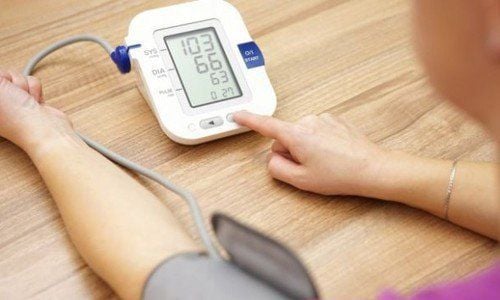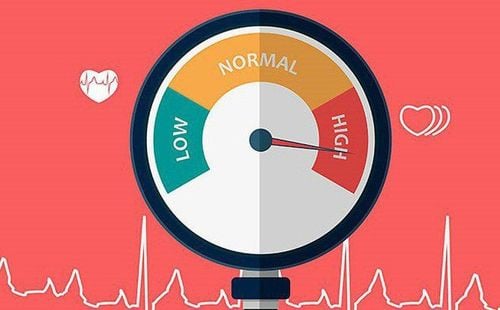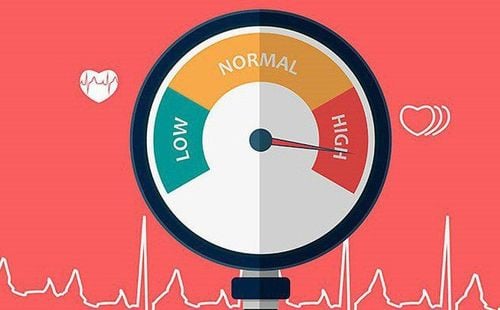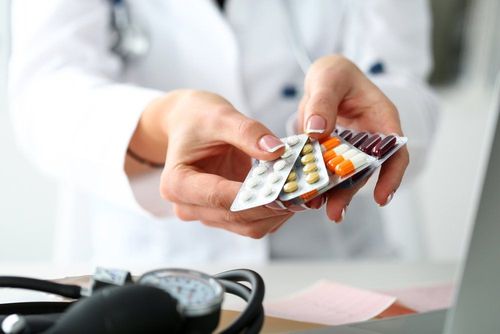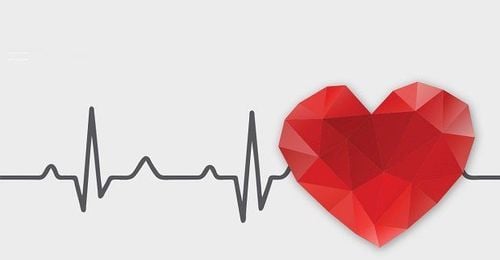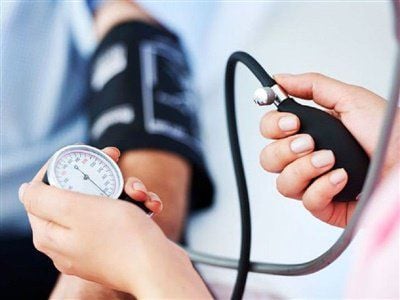Hypertension is a fairly common chronic disease in the community. The main treatment is to take medication regularly every day in combination with non-pharmacological measures. Accordingly, the dosage of the medication must comply with the doctor's instructions through follow-up visits and blood pressure monitoring, avoiding arbitrary use leading to overdose of blood pressure medication, which is dangerous to health.
1. When is blood pressure treatment needed?
Everyone with high blood pressure is advised to make healthy lifestyle changes. Whether or not you need medication depends on your blood pressure readings and your risk of developing problems such as heart attack or stroke. Your doctor will perform some blood and urine tests and ask questions about your health to determine your risk of other problems.
If your blood pressure is consistently above 140/90mmHg (or 135/85mmHg measured at home) but your risk of other problems is low – you will be advised to make some changes to your lifestyle
If your blood pressure is consistently above 140/90mmHg (or 135/85mmHg measured at home) and your risk of other problems is high – you will need to be prescribed medication to lower your blood pressure in addition to lifestyle changes
If your blood pressure is consistently above 160/100mmHg – you will be prescribed medication to lower your blood pressure in addition to lifestyle changes.
Trắc nghiệm: Huyết áp của bạn có đang thực sự tốt?
Huyết áp cao hay thấp đều ảnh hưởng đến tình trạng sức khỏe con người. Để biết tình trạng huyết áp của bạn có thực sự tốt không, hãy làm bài trắc nghiệm sau đây để đánh giá.2. Medications for High Blood Pressure
Several medications may be used to help control high blood pressure. Many people need to take a combination of different blood pressure medications.
If you are under 55, an ACE inhibitor or angiotensin-2 receptor blocker is often prescribed.
If you are 55 or older or of any age and are of African or Caribbean origin, a calcium channel blocker may be prescribed.

Once you are diagnosed with high blood pressure, you may need to take blood pressure medications for the rest of your life. However, your doctor may reduce or stop your treatment if your blood pressure has been controlled for several years. It is really important to take your medications as directed. If you miss doses, the medication will not be able to control your blood pressure.
On the other hand, if you arbitrarily increase the dose of blood pressure medication because you want to lower your blood pressure more than your doctor instructed or accidentally double the dose, the condition of excessively lowering blood pressure or hypotension can also affect the patient's health.
3. Is it okay to overdose on blood pressure medication?
Low blood pressure seems desirable, and for some people, it does not cause any problems. However, for people with high blood pressure, taking an overdose of blood pressure medication causes abnormally low blood pressure (hypotension) which can cause dizziness and fainting. In severe cases, low blood pressure can be life-threatening.
A blood pressure reading lower than 90 millimeters of mercury (mmHg) for the top number (systolic) or 60 mmHg for the bottom number (diastolic) is usually considered low blood pressure. However, in some patients who already have high blood pressure, when the blood pressure reading is still above 90 mmHg, symptoms of hypotension will appear if they overdose on blood pressure medication. Because a sudden drop in blood pressure can be dangerous, a change of just 20 mm Hg — such as a drop from 110 systolic to 90 systolic — can cause dizziness and fainting when the brain does not get enough blood.
Symptoms of low blood pressure from taking too much blood pressure medication include dizziness or lightheadedness, and possibly even fainting; blurred vision, nausea, fatigue, and lack of concentration. If the drop in blood pressure is too severe, it can lead to a life-threatening condition with the following danger signs, requiring emergency medical help:
- Confusion, especially in the elderly
- Cold, clammy, pale skin
- Rapid, shallow breathing
- Weak and rapid pulse
The most common antihypertensive drugs that can cause low blood pressure are diuretics (such as furosemide, hydrochlorothiazide), alpha blockers (such as prazosin), beta blockers (such as atenolol and propranolol), pulmonary vasodilators (including sildenafil or tadalafil), and even the anti-anginal drug nitroglycerin.
Treatment of an overdose of blood pressure medication is mainly supportive treatment, closely monitoring the patient's hemodynamics, waiting for the drug's half-life to pass and the body's circulatory system to recover on its own. However, if an overdose of blood pressure medication results in hypotension, medical intervention is sometimes required, especially when the patient has symptoms of organ ischemia. Active intravenous fluid replacement to maintain effective circulating volume is the first method of implementation. In some cases, it may be necessary to use antagonists or dialysis to remove the blood pressure medication taken, mainly in cases of intentional overdose of blood pressure medication with the intention of committing suicide.
4. Lifestyle changes to control blood pressure
There are a number of changes you can make to your lifestyle to reduce high blood pressure. Some of these will effectively lower your blood pressure within a few weeks, while others may take longer to work.
Reduce salt: Cut your salt intake to less than 6g per day, which is about a teaspoon.
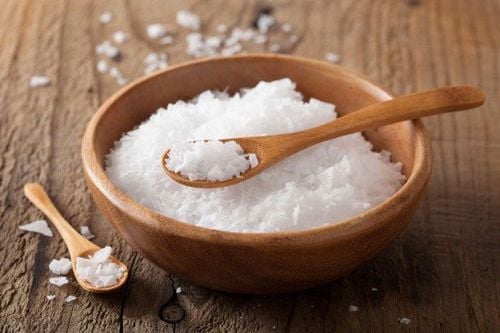
Eat a balanced diet, low in fat - including plenty of fresh fruit and vegetables.
Increase physical activity, exercise
Limit alcohol, beer and drink less caffeine - found in coffee, tea and cola
Lose weight or maintain an ideal weight
Stop smoking
These measures can be taken today, regardless of whether a person is taking blood pressure medication or not. In fact, by making these changes early, a person can avoid having to take blood pressure lowering medication or have their blood pressure controlled more stably with medication as well as avoid the risk of taking too much blood pressure medication or experiencing side effects.
In short, taking blood pressure medication safely is about following the correct type of medication, dosage and daily regularity. There is no way to completely treat high blood pressure. Thus, a positive attitude towards lifestyle changes combined with taking medication as directed by your doctor are the prerequisites to keeping blood pressure stable in the long term.
Any questions that need to be answered by a specialist as well as customers who need to be examined and treated at Vinmec International General Hospital, please register for an online examination on the Website for the best service
To arrange an appointment, please call HOTLINE or make your reservation directly HERE. You may also download the MyVinmec app to schedule appointments faster and manage your reservations more conveniently.
References: medlineplus.gov, medicalnewstoday.com, webmd.com



